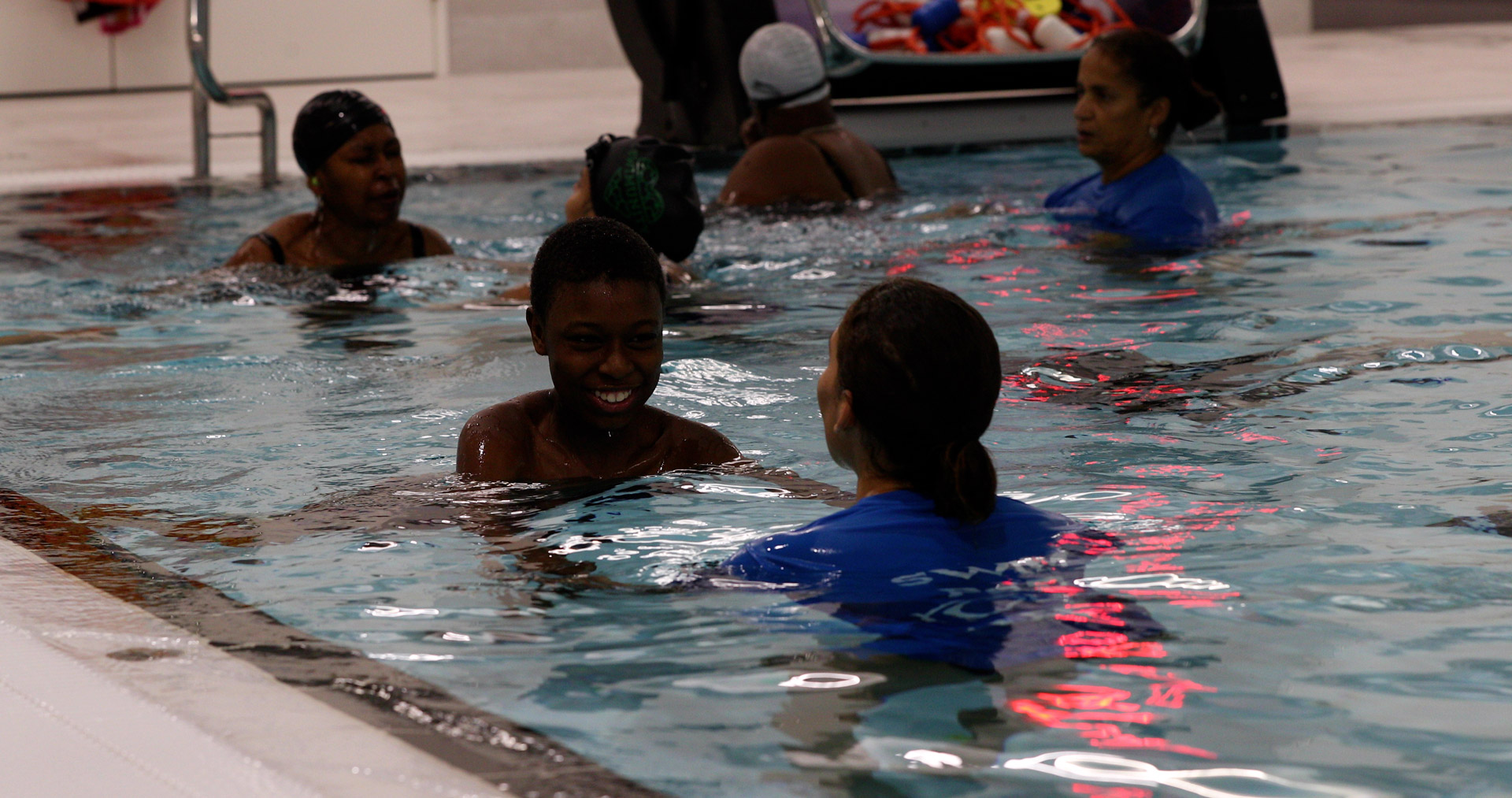
Mar
The Black Swimming Association launches research project to identify, understand and address barriers to participation in aquatic activities and sport
The Black Swimming Association (BSA) has today launched #OurSwimStory – an industry pioneering research project, aimed at exploring the barriers that Black and Asian communities face when it comes to participating and engaging in the world of swimming and aquatics.
#OurSwimStory aims to explore why Black and Asian communities are put off from swimming, with Sport England figures showing that 95% of Black adults and 80% of Black children do not swim, similarly 93% of Asian adults and 78% of Asian children.
The BSA has commissioned AKD Solutions – a renowned consultancy with proven expertise with ethnically diverse communities, and advisor to national governing bodies – to conduct the research, with AKD seeking to engage 1,400 respondents in seven locations across England and Wales on a range of topics including socio-economic, cultural, attitudinal, behavioural and institutional barriers to participation in aquatic activity.
As part of the project, the BSA and AKD will work together to highlight and amplify the most impactful stories uncovered during the research, highlighting how the aquatics sector can be effective in engaging under-represented communities in aquatics. Central to this research and true to the ethos of the BSA is community engagement to build trust, accountability and develop long-term collaborative partnerships with our target communities. This trust is vital in capturing better quality insights than more traditional approaches to research will achieve.
Danielle Obe, Chair and Co-founder of the BSA, said: “The commissioning of this research is a pivotal moment for us and our communities. We have long known through anecdotal evidence that there are some unique, yet significant barriers which prevent people of Black and Asian heritage from getting into the water, but the findings from this project will give us real insight into how we can remove these barriers that have so long prevented us from getting into water; and ultimately encourage more people from ethnically diverse communities to experience the mental and physical health benefits of swimming not just as a vital life skill but as a sport.
“Swimming the only sport that can save lives. The BSA was created to diversify the world of aquatics through advocacy, research, education, and support; collaborating with other aquatic charities, brands and national governing bodies to educate on water safety, drowning prevention, aquatic pathways and opportunities. Making aquatics safer, more inclusive, accessible and equitable for people of African, Caribbean, and Asian heritage. This work, alongside with our other research projects, will go a long way to making this possible.”
Ladi Ajayi, Head of the Sports Division, AKD adds: “”I’m excited that AKD will be working on this research as it builds upon the seminal work of the #TellYourStory experiential research commissioned by UK Sport and the home countries as part of Tackling Racism and Racial Inequality In Sport (TRARIIS) agenda. We will be able to bring even more insight and evidence specifically in aquatic activity on lived experiences of people from ethnically and culturally diverse communities who don’t engage and do engage with these activities and the reasons why. With this work we can help support solutions to address the challenges of disproportionate non-engagement from these communities and get them water safe as a minimum and fully immersed in an aquatic activity as an optimum.”
The move has been supported by organisations across the world of aquatics, with supporting quotes available below from the likes of Royal Life Saving Society UK, Royal National Lifeboat Institution, Sport Wales, Swim Wales and Active Black Country.
Born out of a need to do more, the BSA was co-founded by Danielle Obe, Ed Accura, Seren Jones and Alice Dearing, who became only the second Black swimmer to represent Team GB when she competed at the 2020 Tokyo Olympic Games.
Anybody interested in being part of the research programme should email contactus@thebsa.co.uk
No Comments